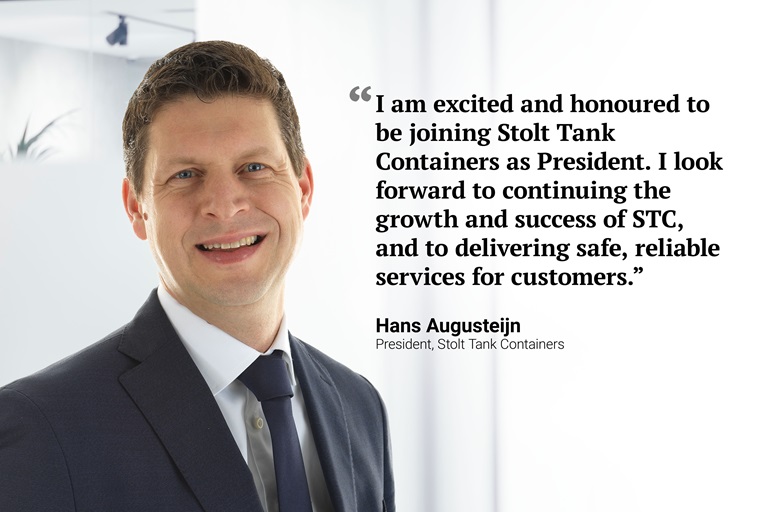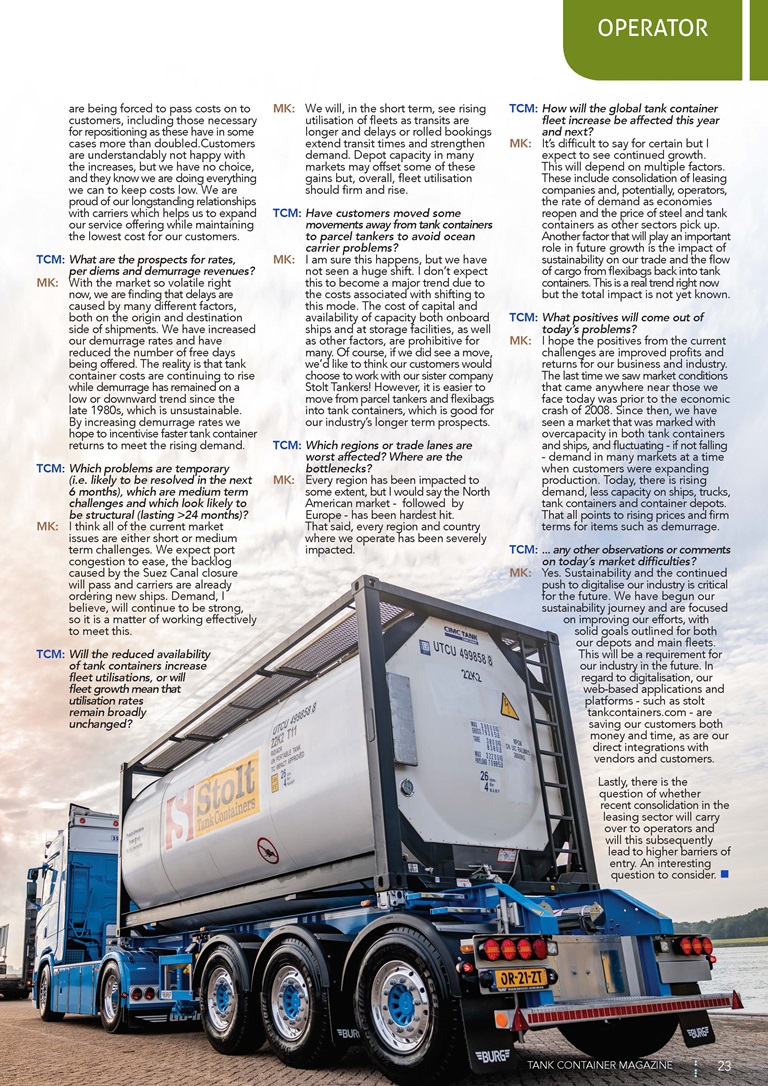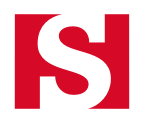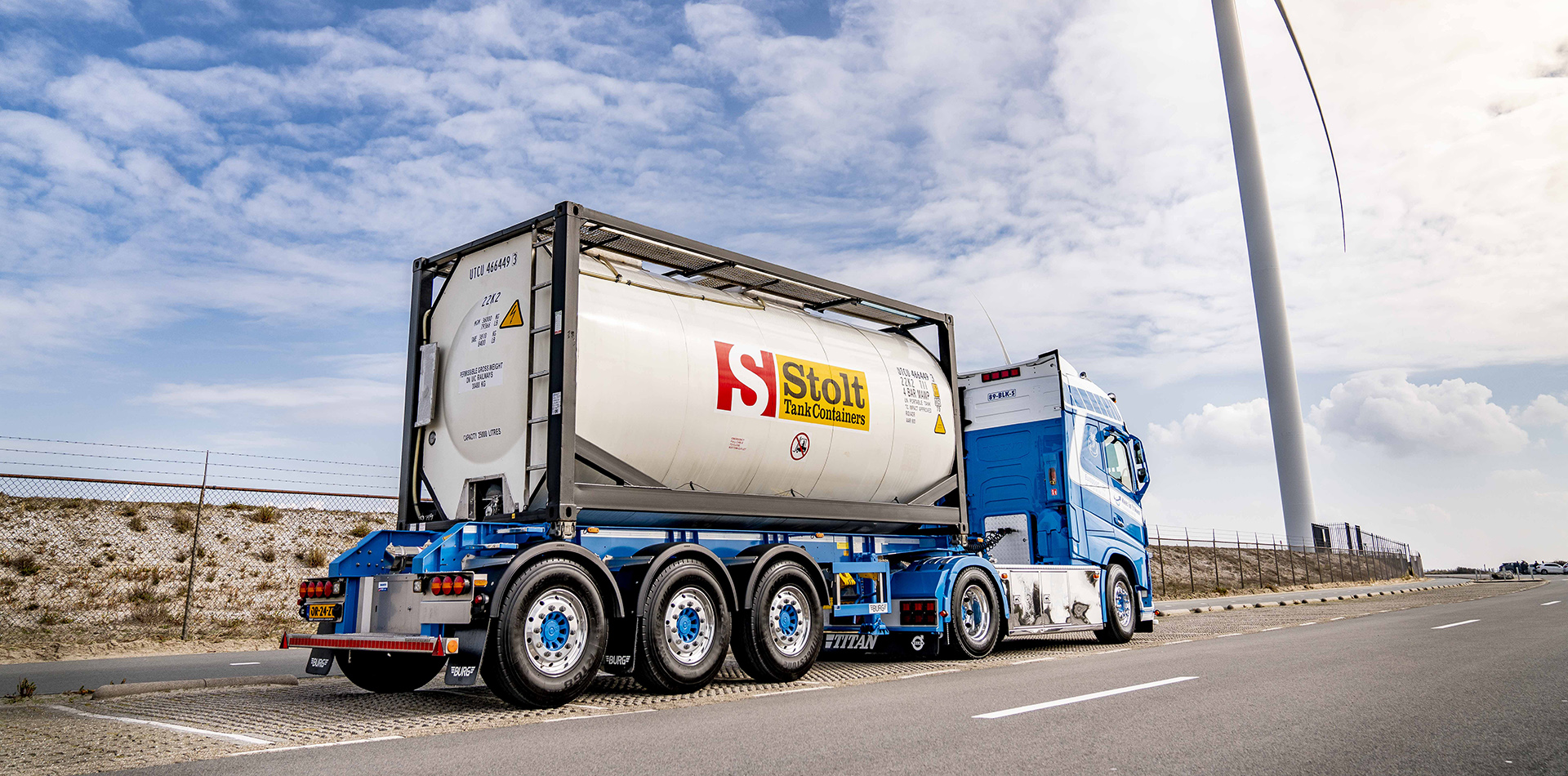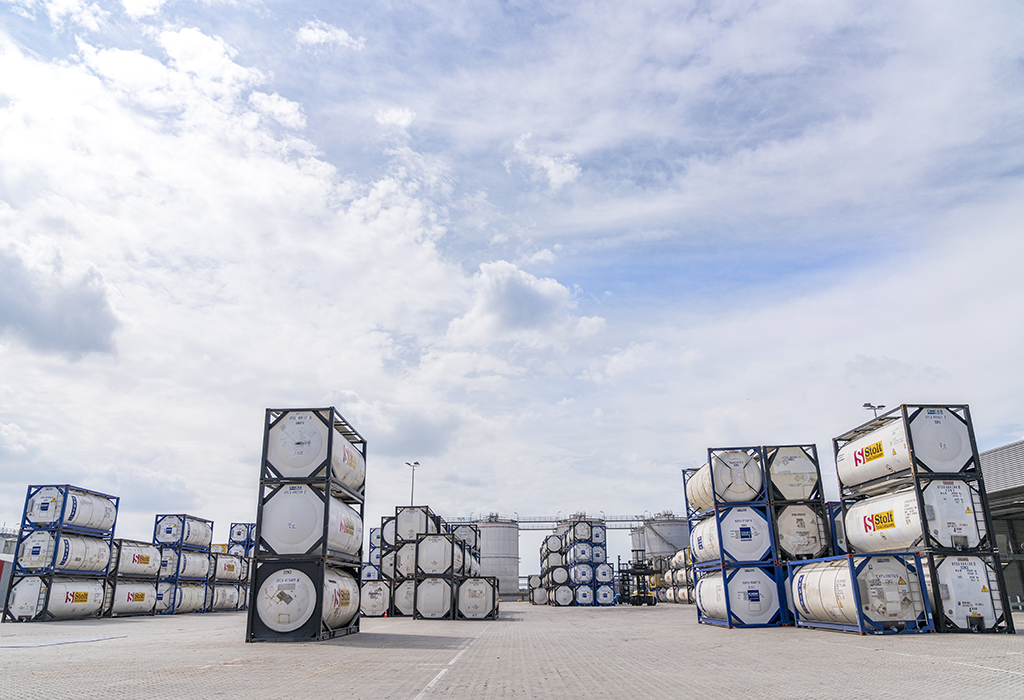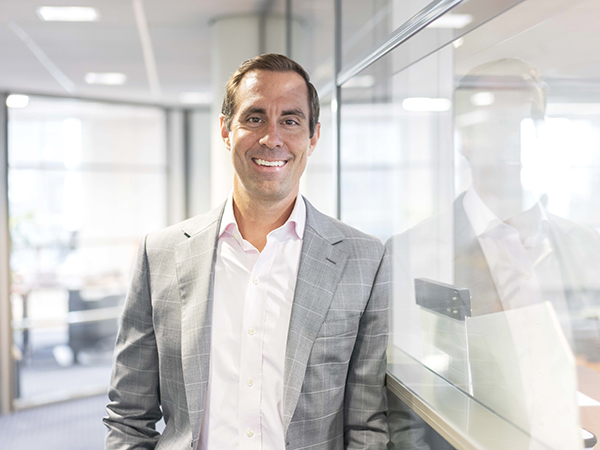Michael Kramer, President of Stolt Tank Containers, gives an interview to Tank Container Magazine
Michael Kramer, President of Stolt Tank Containers, spoke to Tank Container Magazine about how Stolt Tank Containers is navigating today’s unusually volatile and dislocated tank container market
Mike Kramer is the long-term President of market-leading operator Stolt Tank Containers. Tank Container Magazine asked him to share his thoughts on how Stolt Tank Containers is navigating today’s unusually volatile and dislocated tank container market.
TCM: What are the biggest difficulties tank container operators are currently facing?
MK: There are both good and bad challenges that tank operators face today. First, the good - we are seeing incredibly strong demand across all geographies and sectors of the market as economies begin to rebound from COVID and consumer confidence improves. This is driving our customers to restock and restart, or increase, production to full capacity. We are also seeing very strong growth in demand as cargo moves from unsustainable flexibags back into tank containers, because of both the global dry box shortage and a renewed focus by customers on sustainable supply chains. The negative challenges are more closely related to unexpected events, vendor availability and unreliable infrastructure. In addition to managing extremely volatile swings in demand caused by COVID, production and supply chains have been disrupted by unusual events such as the Texas freeze which closed many production plants for an extended period. The Suez Canal closure also negatively impacted supply chains. These events are coupled with massive port congestion, capacity constraints of carriers, blank sailings and declining levels of service from many vendors, including the ocean carriers that our industry relies on. These situations combine to produce rising costs and increasing service challenges for tank container operators. The availability of quality drivers and trucks is also becoming a much larger challenge too! To meet customer demands - and the challenging market conditions - operators have been required to add both tank containers and manpower to their operations to compensate for the additional tank container moves and delays caused by the capacity constraints and congestion. The challenge now is to pass these cost increases on to customers in a timely fashion.
TCM: What has caused each individual difficulty?
MK: Changes in many aspects of global logistics and changing supply and demand patterns caused by COVID, coupled with infrastructure issues and rising - and very tight - ocean freight and trucking markets.
TCM: How will they be resolved?
MK: We are working with both customers and vendors to improve the way we forecast, plan and deliver our services in a more agile and efficient way. We must improve two-way communication and collaboration, both up and down supply chains, to ensure goods are delivered with the highest levels of service at the lowest cost to customers.
TCM: As a leading operator, what actions are you taking to ease the situation (e.g. booking space further ahead, booking more slots, trading slots, changing routes, passing on increased costs via surcharges, focusing less on deep sea customers, avoiding lower margin deep sea business, accessing more chassis/transporters, etc)?
MK: To combat or ease issues within customer supply chains, we have renegotiated rates and space allocations with carriers while increasing the breadth of the carriers that we work with. We continue to evaluate routings and work to keep costs low, but the reality is that we customers, including those necessary for repositioning as these have in some cases more than doubled. Customers are understandably not happy with the increases, but we have no choice, and they know we are doing everything we can to keep costs low. We are proud of our longstanding relationships with carriers which helps us to expand our service offering while maintaining the lowest cost for our customers.
TCM: What are the prospects for rates, per diems and demurrage revenues?
MK: With the market so volatile right now, we are finding that delays are caused by many different factors, both on the origin and destination side of shipments. We have increased our demurrage rates and have reduced the number of free days being offered. The reality is that tank container costs are continuing to rise while demurrage has remained on a low or downward trend since the late 1980s, which is unsustainable. By increasing demurrage rates we hope to incentivise faster tank container returns to meet the rising demand.
TCM: Which problems are temporary (i.e. likely to be resolved in the next 6 months), which are medium term challenges and which look likely to be structural (lasting >24 months)?
MK: I think all of the current market issues are either short or medium term challenges. We expect port congestion to ease, the backlog caused by the Suez Canal closure will pass and carriers are already ordering new ships. Demand, I believe, will continue to be strong, so it is a matter of working effectively to meet this.
TCM: Will the reduced availability of tank containers increase fleet utilisations, or will fleet growth mean that utilisation rates remain broadly unchanged?
MK: We will, in the short term, see rising utilisation of fleets as transits are longer and delays or rolled bookings extend transit times and strengthen demand. Depot capacity in many markets may offset some of these gains but, overall, fleet utilisation should firm and rise.
TCM: Have customers moved some movements away from tank containers to parcel tankers to avoid ocean carrier problems?
MK: I am sure this happens, but we have not seen a huge shift. I don’t expect this to become a major trend due to the costs associated with shifting to this mode. The cost of capital and availability of capacity both onboard ships and at storage facilities, as well as other factors, are prohibitive for many. Of course, if we did see a move, we’d like to think our customers would choose to work with our sister company Stolt Tankers! However, it is easier to move from parcel tankers and flexibags into tank containers, which is good for our industry’s longer term prospects.
TCM: Which regions or trade lanes are worst affected? Where are the bottlenecks?
MK: Every region has been impacted to some extent, but I would say the North American market - followed by Europe - has been hardest hit. That said, every region and country where we operate has been severely impacted.
TCM: How will the global tank container fleet increase be affected this year and next?
MK: It’s difficult to say for certain but I expect to see continued growth. This will depend on multiple factors. These include consolidation of leasing companies and, potentially, operators, the rate of demand as economies reopen and the price of steel and tank containers as other sectors pick up. Another factor that will play an important role in future growth is the impact of sustainability on our trade and the flow of cargo from flexibags back into tank containers. This is a real trend right now but the total impact is not yet known.
TCM: What positives will come out of today’s problems?
MK: I hope the positives from the current challenges are improved profits and returns for our business and industry. The last time we saw market conditions that came anywhere near those we face today was prior to the economic crash of 2008. Since then, we have seen a market that was marked with overcapacity in both tank containers and ships, and fluctuating - if not falling - demand in many markets at a time when customers were expanding production. Today, there is rising demand, less capacity on ships, trucks, tank containers and container depots. That all points to rising prices and firm terms for items such as demurrage.
TCM: ... any other observations or comments on today’s market difficulties?
MK: Yes. Sustainability and the continued push to digitalise our industry is critical for the future. We have begun our sustainability journey and are focused on improving our efforts, with solid goals outlined for both our depots and main fleets. This will be a requirement for our industry in the future. In regard to digitalisation, our web-based applications and platforms - such as stolttankcontainers.com - are saving our customers both money and time, as are our direct integrations with vendors and customers. Lastly, there is the question of whether recent consolidation in the leasing sector will carry over to operators and will this subsequently lead to higher barriers of entry. An interesting question to consider.
